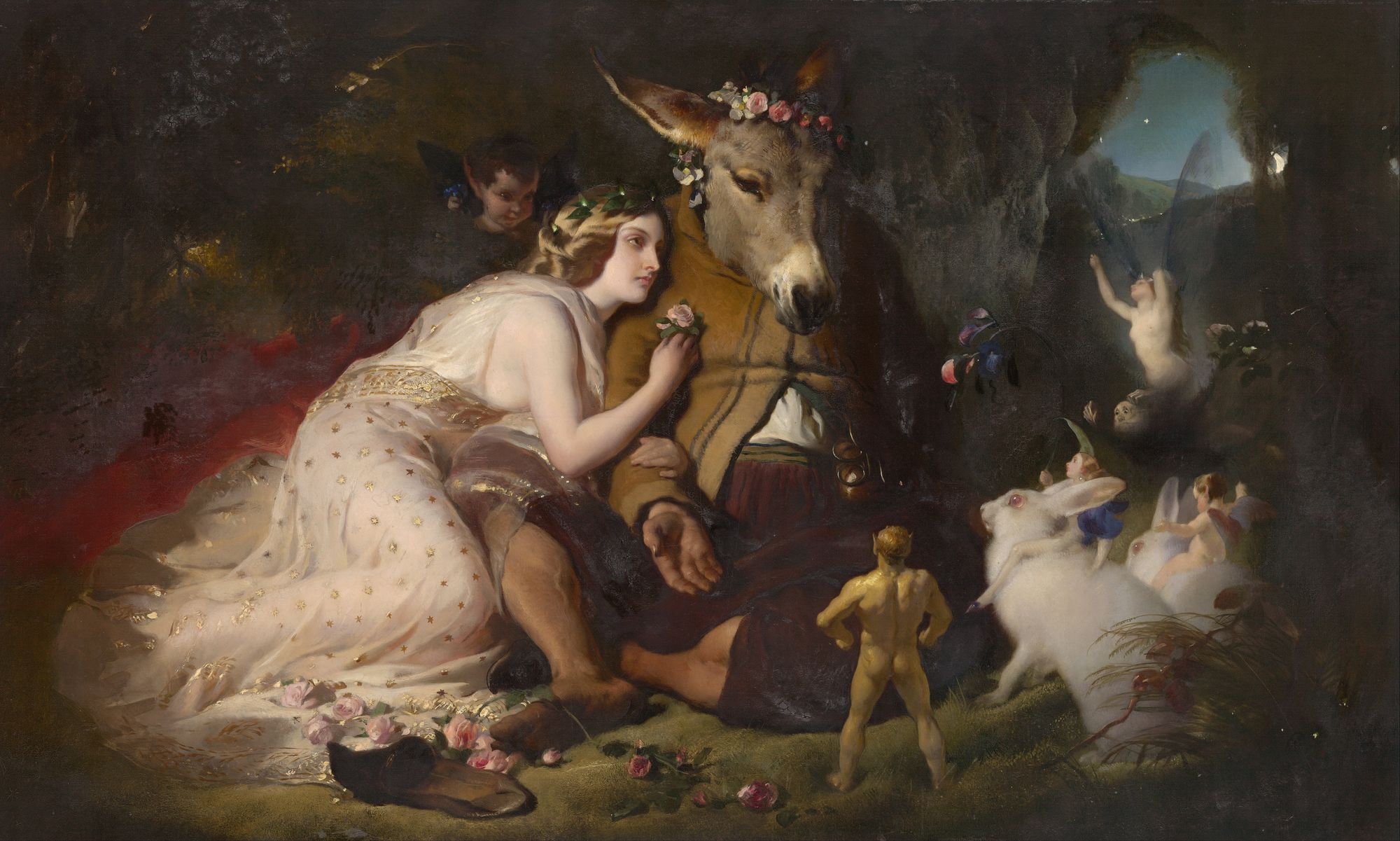I can vividly recall playing Nick Bottom in Midsummer Nights Dream as a high school sophomore back in 1993. I loved conveying the humor to an audience and I remember thinking "I want to play all of Shakespeare's fools!".

Unfortunately I haven't read a Shakespeare play since I played the fool in Titus Andronicus back in 2005 and I kind of regret that.
People say that adults learn slower, on average, than children. I suspect that part of the reason we tend to experience a slower learning curve as we age is that when we finish our formal education, and there is no longer any external pressure to think, we tend to take the easy way out. We might want, in theory, to read that hard book, watch that insightful foreign film or finally learn to play an instrument. But when we come home at the end of a busy day we just go with the easier option of turning on the TV and ordering takeout.

This makes sense; our brain doesn't want to do any heavy lifting after a day of work. Even someone like me who is actually wants to do things like read a play struggles to find the motivation and energy. Sure I have kids and work and all kinds of other activities that I can use an excuse, but I also have enough time in my life to watch at least two hours of YouTube a day so I can't really blame my schedule for not getting around to doing things.
Shakespeare reportedly wrote 38 plays. If I watch and read three books a month I can finish this goal in about a year. I think that this is achievable but I want to balance the fine line between enjoying this journey and completing it within a meaningful timeframe.
So for the next year I am loosely imposing a schedule of watching two to three Shakespeare plays a month and reading said plays. I'll still read other books and engage in other projects but for this challenge to succeed it will require watching one Shakespeare movie every weekend and reading about 4-5 hours a week. That kind of schedule will hopefully keep the reading and viewing enjoyable and not feel like "work". I'm going to treat this just like my marathon training; do enough of it so that I enjoy it and improve my skills but not so much that it's painful. If I find it too painful I will just slow down - it's not a big deal if this takes me two or three years to complete; it's a marathon not a sprint!
I'm borrowing ideas from two writers I respect as I plan this challenge:
- Scott H Young, who wrote the excellent book "Ultralearning" about how he sets himself up for high impact learning challenges like completing the entire MIT computer science curriculum in one year! I have tremendous respect for this writer's commitment to learning and I want to emulate this as a life goal even though my own learning projects won't be nearly as ambitious in scope.
- Benjamin Mcevoy, a prodigious reader and essayist who is making the world's greatest literature more approachable outside of a formal academic setting. Mcevoy suggests that watching the plays, reading them and then writing a review would give an equivalent to the majority of the true value of what he learned from his time studying English at Oxford. I am definitely following this general framework as I map out my own journey.
Mcevoy suggests a reading order informed by his experience reading all of the plays during his senior year. He starts and finishes with the best of Shakespeare's plays and intersperses the worst and average plays to keep himself engaged through what he describes as "the slogs".
That makes a lot of sense but I would prefer to attempt some chronological order to reading the plays. That will give me some sense of continuity and would allow me to more clearly see Shakespeare's evolution as a writer.
I just picked up a copy of Issac Asimov's guide to Shakespeare and will read the plays in the order that Asimov writes about them. This will keep me from analysis paralysis because Asimov offers relevant historical context and his own thoughts on the reading as he goes along. It doesn't surprise me that Asimov wrote a guide to Shakespeare given how prolific a writer he was; he claimed to write 12 hours a day, every day, and thus was able to write and edit over 500 books (1).
There is something wonderful about reading Asimov's thoughts - as a prolific scientific and popular writer he can appreciate Shakespeare in a way that even the best Shakespearean scholars and critics, who predominately write for an academic audience, can't approach. Since Shakespeare wrote about the people and for the people having a prolific science fiction writer to serve as a guide seems appropriate. Reading Asimov's analysis before I read the play will also help me follow the plot with less friction so I can focus on appreciating the language, which is the most important part for me. It won't be as good as having an excellent professor serve as my guide but reading Asimov's and watching movies and plays will be an excellent equivalent.
Why am I doing this? Why don't I just focus more on drawing or do something directly related to the subject I teach? I'm not entirely sure - it was an idea that came into my head some time ago and I want to check it off my list. It is not likely a coincidence that I am returning to this love that started almost exactly 30 years ago.
Whatever the reason, this goal has stayed with me it is taking up mental space that I could devote to other things so its high time I devoted some attention to checking it off my list. I'm sure it will bear fruit in some unexpected ways. Since a big part of my personal journey is to have as great an understanding of the truth of the human story as I can achieve I don't think I go wrong by reading more Shakespeare.
I recognize that writing about a big goal could be setting myself up for failure. Like running a marathon, I could be all gung ho about this for the first half of the journey and then get jelly legs somewhere near the end.

That would be potentially be embarrassing if I were the kind of person that worried about my "brand"; fortunately I am not that kind of man. A very real challenge for me is that I get distracted by some other idea and I drop this before I have gained sufficient momentum to see this challenge to its conclusion. This is something I do all the time. The fact that I have read three of his plays before starting this blogpost part of how I am compensating for my own personal weakness with regard to following through.
It's also likely that nobody will be interested in reading about this outside of a few acting dorks and nerds (I mean that with the greatest affection) and this writing will generate little interest. Will I be able to maintain motivation for this if nobody cares? I would like to think so but I can't deny I have enough of an ego to hope that people care to read what I write.
My hope is that sharing my intention publicly will encourage me to push through those moments when my brain tells me that nobody cares about what I'm writing and that my time would be better spent rewatching Conan the Barbarian instead of reading another play and writing a blog post almost nobody will read.

But even if I only read some of the plays that I hadn't read before I will be a richer person despite failing.
I hope you'll share your thoughts as I write up my reviews.


Member discussion: